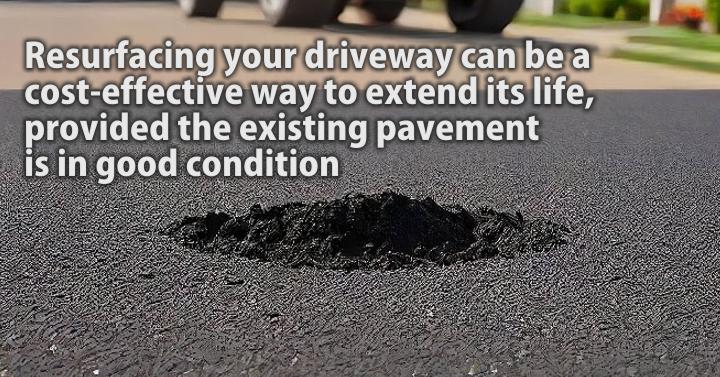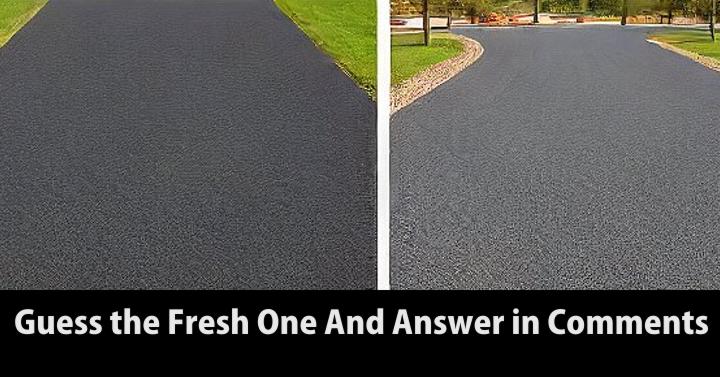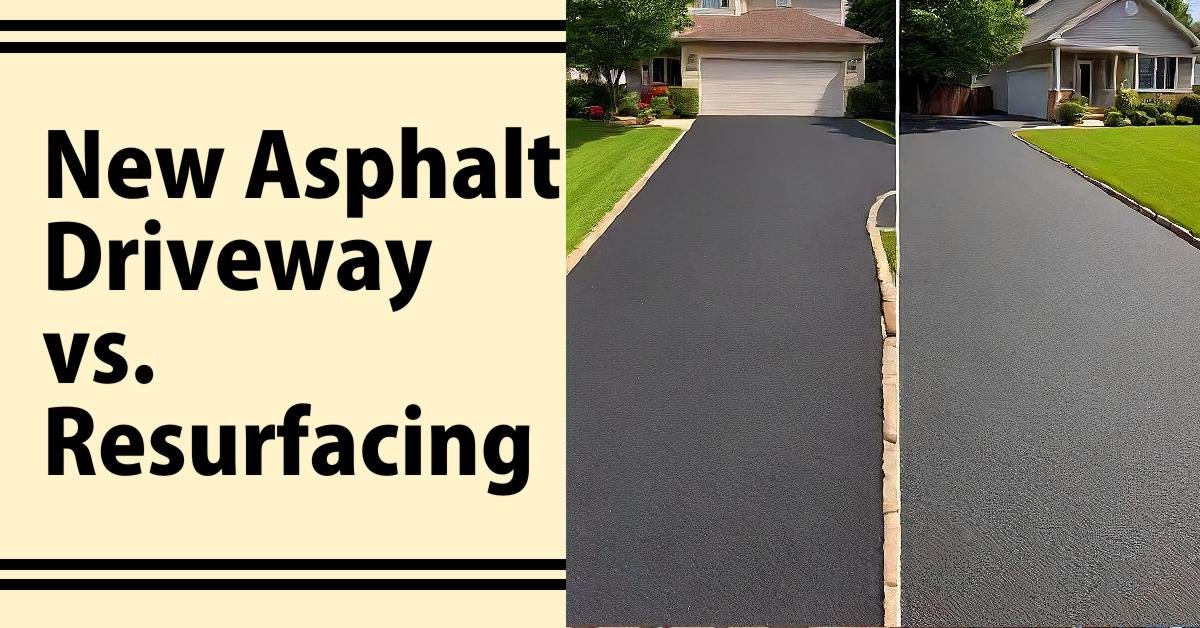Resurfacing an existing driveway can be a cost-effective solution, but it’s important to evaluate the current condition of the pavement to ensure it provides a solid foundation for the new layer The cost of installing a new asphalt driveway can vary significantly based on factors such as driveway size, site preparation requirements, and the cost of materials and labor in your local area. On average, you can expect to pay between $4 and $10 per square foot for a new asphalt driveway installation.
In contrast, resurfacing an existing asphalt driveway, also known as an asphalt overlay, is generally more cost-effective, typically ranging from $2.50 to $5.80 per square foot. The primary factors influencing the cost of resurfacing include the condition of the existing driveway, the thickness of the new asphalt layer, and any necessary repairs or surface preparations.
Cost Factors
The price difference between installing a new asphalt driveway and resurfacing an existing one depends on multiple factors. It is important to know these factors to budget well and make informed choices.

Materials, Labor, and Equipment Costs
Material costs play a major role in determining the price of these projects. Inclusive in a new driveway installation is normally a base layer, asphalt mix, and other materials for site preparation. On the other hand, resurfacing requires less material because it involves adding another layer of asphalt on top of the already existing surface.
The two options can have quite varying labor costs too. With new installations, there’s more labor involved because there has to be site preparations, excavation, grading, and putting up the base course thus increasing the total cost. Conversely, for resurfacing very little labor is required since there is already an existing surface.
Equipment costs also matter. Although both undertakings may require similar equipment for laying down and compacting asphalt; however a fresh installation may demand extra ones concerning site preparation as well as excavation hence increasing the overall cost further.
Factors Affecting Asphalt Driveway Lifespan
Asphalt driveways have a variety of factors that directly or indirectly affect their life span. These include the quality of installation, thickness of asphalt layers, volume and weight of traffic, and local climate.
Usually with proper maintenance an asphalt driveway that has been installed by the industry’s standards and best practices may last for about 15 to 25 years. Depending on the condition of the original surface and the thickness of the new asphalt overlay, this could extend its lifetime by about 5-10 years if it is resurfaced.
It is good to know that driveways that are heavily used, exposed to harsh weather conditions, or not properly maintained may need frequent repair or complete replacement.

Additional Costs and Considerations for Resurfacing
Although resurfacing an asphalt driveway is generally less expensive than replacing it completely, there are other things to look at. These are:
Repairing the existing surface:
There may be cracks, potholes, or other types of damage that have to be addressed before resurfacing can generate a new smooth, and long-lasting surface.
Surface prep:
Cleaning, milling or any other kind of preparations need to be undertaken on the former driveway for the new asphalt layer to stick properly.
Drainage and slope adjustments:
Resurfacing might demand changes to attain proper water flow and avoid ponding or washing away.
To identify any additional costs or considerations that may arise during resurfacing, you must get a professional asphalt paving contractor who can examine your current driveway.
Maintenance and Long-Term Costs
Proper maintenance is crucial for maximizing the lifespan of both new and resurfaced asphalt driveways. Regular maintenance tasks may include:
Sealing: Apply a seal coat every 2-3 years to protect the asphalt from weathering and oxidation.
Crack filling: Addressing any cracks or fissures promptly to prevent further deterioration.
Cleaning: Removing debris, dirt, and other contaminants that can accelerate wear and tear.
Quality of Installation and Maintenance
The lifespan and longevity of an asphalt driveway are heavily influenced by the quality of the initial installation and ongoing maintenance practices. A new asphalt driveway installed by experienced professionals, following industry best practices, and using high-quality materials, can typically last between 15 to 25 years with proper maintenance.
On the other hand, resurfacing an existing driveway can extend its lifespan by 5 to 10 years, depending on the condition of the original surface and the quality of the resurfacing process. Proper surface preparation and the application of a high-quality asphalt overlay are crucial for ensuring the longevity of a resurfaced driveway.
While the initial cost of resurfacing may be lower than a full replacement, it’s important to consider the long-term maintenance requirements and costs of each option to determine the most cost-effective solution over the driveway’s lifespan.
Environmental and Sustainability Considerations
Material Consumption and Waste Generation
When considering the environmental impact of each option, material consumption and waste generation are important factors to consider. A new asphalt driveway installation typically requires more materials, potentially resulting in higher resource consumption and waste generation during construction.
Resurfacing, on the other hand, typically involves less material consumption and generates less waste, as the existing surface is being utilized. However, it’s important to consider the disposal or recycling options for the removed asphalt material during resurfacing projects.
Recycled Content and Greenhouse Gas Emissions
Many asphalt paving contractors now incorporate recycled materials, such as reclaimed asphalt pavement (RAP), into their asphalt mixes. Using recycled content can help reduce the environmental impact of both new installations and resurfacing projects by conserving natural resources and reducing greenhouse gas emissions associated with the production of new materials.
Preparing the Site: New Driveway vs. Resurfacing
Site Preparation and Excavation
For a new asphalt driveway installation, site preparation is a crucial step that involves excavation, grading, and the installation of a stable base layer. This process can be labor-intensive and may require specialized equipment, contributing to the overall cost of the project.
Existing Surface Assessment and Preparation
In the case of resurfacing an existing asphalt driveway, the preparation process typically involves assessing the condition of the existing surface and addressing any significant cracks, potholes, or other damage. This may require some surface repairs or milling to ensure a smooth and stable base for the new asphalt overlay.
Asphalt Mix Design and Installation Techniques
New Driveway:
Base Installation and Compaction For a new asphalt driveway installation, the base layer is a critical component that provides a stable foundation for the asphalt surface. Proper installation techniques, including adequate compaction, are essential to ensure the long-term performance and durability of the driveway.
Resurfacing:
Asphalt Overlay Thickness and Compaction In the case of resurfacing, the thickness of the asphalt overlay and the compaction process are crucial factors. A thicker overlay may be required for driveways with significant damage or heavy traffic, while proper compaction is essential for ensuring a smooth and durable surface.
Can I install a new asphalt driveway myself, or should I hire a professional contractor?
As an experienced construction manager, I strongly recommend hiring a professional asphalt paving contractor to install a new asphalt driveway. DIY installations can be challenging and often lead to issues with compaction, grading, and overall quality. Professional contractors have the necessary equipment, expertise, and resources to ensure a proper installation that meets industry standards and provides long-lasting performance.
How long should I wait before driving or parking on a newly installed or resurfaced asphalt driveway?
When it comes to newly installed or resurfaced asphalt driveways, I advise waiting at least 24 to 48 hours before driving or parking on the surface. This allows sufficient time for the asphalt to cool and cure properly, ensuring a durable and long-lasting finish. Driving or parking on the driveway too soon can cause indentations, scuffing, or other damage to the fresh asphalt.
Are there any specific maintenance tasks required for asphalt driveways in areas with harsh winters or extreme temperatures?
In areas with harsh winters or extreme temperatures, there are specific maintenance tasks required for asphalt driveways. For instance, in regions with heavy snowfall, it’s crucial to remove snow and ice promptly to prevent freeze-thaw cycles that can cause cracking and deterioration. Additionally, sealing the asphalt surface every 2-3 years can help protect it from the effects of extreme heat or cold and extend its lifespan.
Can I resurface an asphalt driveway over an existing concrete surface?
While it is possible to resurface an asphalt driveway over an existing concrete surface, it’s generally not recommended. Concrete and asphalt have different thermal expansion and contraction rates, which can lead to issues such as cracking, delamination, or premature failure of the asphalt overlay. If you’re considering this option, I strongly advise consulting with a professional contractor to assess the condition of the concrete surface and determine the feasibility and best approach.
Are there any zoning or permit requirements I need to consider before installing or resurfacing an asphalt driveway?
Yes, there are often zoning and permit requirements that need to be considered before installing or resurfacing an asphalt driveway. These requirements can vary depending on your local municipality or homeowners’ association rules. It’s important to check with the relevant authorities to ensure compliance and obtain any necessary permits before proceeding with the project.
How does the slope and drainage of the driveway area affect the installation or resurfacing process?
The slope and drainage of the driveway area play a crucial role in the installation or resurfacing process. Proper slope and drainage are essential for preventing water accumulation, which can lead to premature deterioration of the asphalt surface. During the installation or resurfacing, the contractor will need to assess the existing slope and drainage conditions and make any necessary adjustments to ensure proper water runoff and prevent pooling or erosion.
Are there any alternative materials to asphalt that I should consider for my driveway project?
While asphalt is a popular and cost-effective choice for driveways, there are alternative materials that you may want to consider, depending on your specific needs and preferences. Concrete, pavers, and permeable surfaces are some options that can offer different aesthetic appeal, durability, or environmental benefits. However, each material has its advantages and disadvantages in terms of installation costs, maintenance requirements, and overall performance.
How do I choose the right asphalt mix design for my driveway based on factors like climate and traffic loads?
Choosing the right asphalt mix design for your driveway is crucial to ensure optimal performance and longevity. The mix design should consider factors such as the local climate conditions, anticipated traffic loads, and the desired lifespan of the driveway. For example, in areas with extreme temperatures or heavy traffic, a denser, more durable mix may be recommended. Consulting with an experienced asphalt paving contractor can help you select the appropriate mix design based on your specific project requirements.
Can an asphalt driveway be resurfaced or repaired in sections, or does the entire surface need to be addressed at once?
In some cases, it may be possible to resurface or repair an asphalt driveway in sections, rather than addressing the entire surface at once. However, this approach is generally not recommended, as it can create visible seams or inconsistencies in the appearance and performance of the driveway. For optimal results, it’s advisable to resurface or repair the entire driveway surface at once to ensure a seamless and uniform finish.
Are there any specialized techniques or equipment used for resurfacing asphalt driveways in tight or hard-to-access areas?
When it comes to resurfacing asphalt driveways in tight or hard-to-access areas, specialized techniques and equipment may be required. For example, contractors may use smaller, more maneuverable paving machines or even hand tools for areas that are difficult to access with larger equipment. Additionally, they may employ specialized compaction techniques or use smaller rollers to ensure proper compaction in confined spaces. It’s essential to work with experienced contractors who have the necessary skills and equipment to tackle these challenging scenarios effectively.
